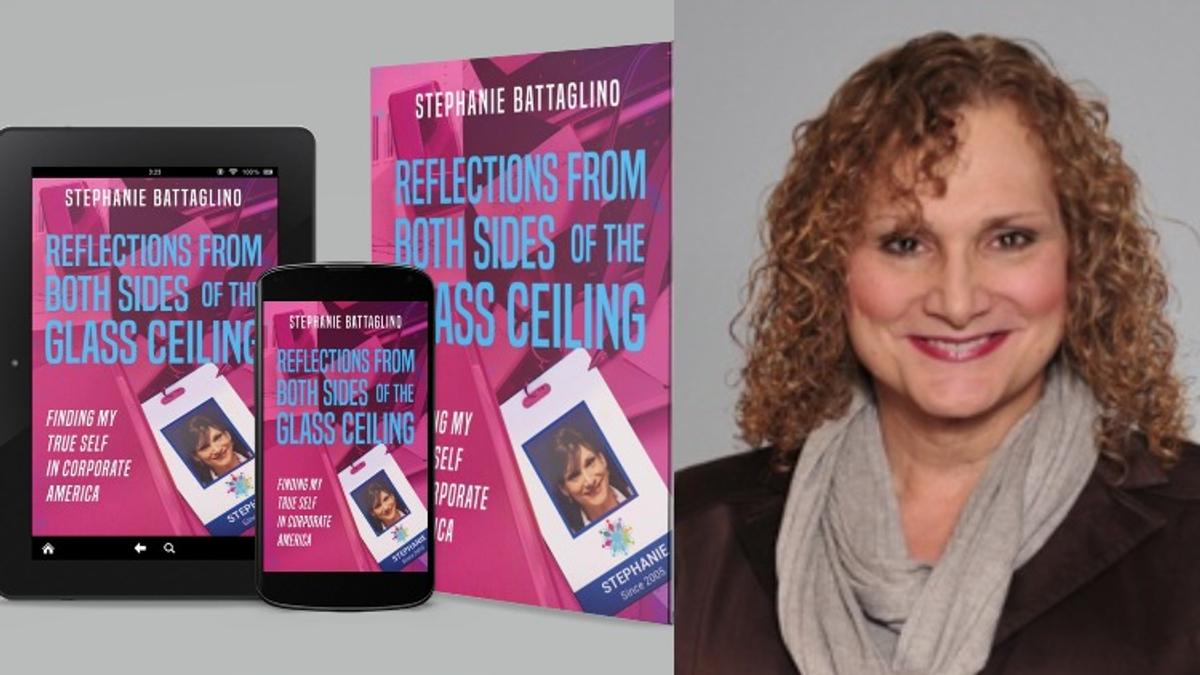When it comes to the glass ceiling, Stephanie Battaglino has worked on both sides of that barrier and knows firsthand the benefits of male privilege and the difficulties of advancing without it.
In her new book, Reflections From Both Sides of the Glass Ceiling: Finding My True Self in Corporate America (L'Oste Vineyard Press), the author, PFLAG National board member, motivational speaker, and refugee from corporate America writes of her experience in the workplace, first as someone climbing the corporate ladder with white male privilege and then as a transgender woman treading water with little hope of real advancement. Battaglino has used her experience to examine the evolution of the workforce for trans folks. But don't let the title fool you, as her book is more than just a study on the modern workplace.
The memoir also tells of Battaglino's life growing up in a home straight out of All in the Family. Her entire childhood was centered on the accepted belief she would become an alpha male like her father. While she enjoyed her first baseball game with her father and loved to gather her coveted Matchbox cars and build highways on the living room floor, she had a secret obsession with the clothes in her mother's closet and her sister's extensive makeup collection.

Battaglino eventually escaped a tumultuous home by winning a football scholarship to the University of Delaware, where she became a starter on the freshman team. She quit after one season and turned to less healthy extracurricular activities, including experimentation with drugs. After college, she burned through marriages and jobs until, while employed as an officer at New York Life with a preteen son at home, she came out as trans.
The experiences both before and after she came out revealed to her that people and policy are the two components of what she calls the "inclusion equation." Some people supported her at the time and others didn't approve of her gender identity or made little effort to understand. Battaglino says she learned the policy component of the equation is the trickier of the two since corporate policy can only go so far when it's limited by personal, ingrained institutional biases and prejudices.
Battaglino cautions against policies based on the wrong foundations. She says the key to creating effective and lasting policy starts with asking the right questions.
"How do we make sure that we are creating a workplace that celebrates LGBTQ people, and in particular trans and nonbinary people?" She says that's the central factor to answer.
Reflections From Both Sides of the Glass Ceiling raises questions about how the workplace has responded to transgender workers over the decades. Battaglino notes that the tragic reality is trans folks often get "voted off the island, and then that's that."
But her book also shines a bright light on the people who helped and supported her through this period. It's this support, Battaglino reveals, that was instrumental in helping her come to terms with her true self while navigating a corporate environment that had suddenly changed along with her gender. Support in her personal life was key as well, she says.
"There's a road that rises up to meet you, and that is those people that love you and celebrate you that aren't your birth family...I surrounded myself with those people," she says. "Family's really important to me. But what...I think I've found over the years is chosen family can be more important than birth family."



















































































